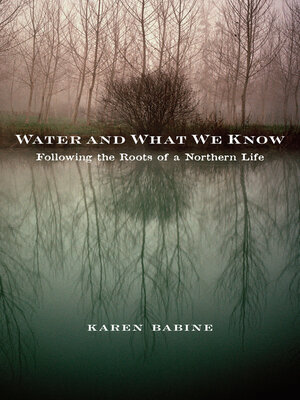
Sign up to save your library
With an OverDrive account, you can save your favorite libraries for at-a-glance information about availability. Find out more about OverDrive accounts.
Find this title in Libby, the library reading app by OverDrive.



Search for a digital library with this title
Title found at these libraries:
| Library Name | Distance |
|---|---|
| Loading... |
2016 Minnesota Book Award Winner for Memoir & Creative Nonfiction
Consider your place, the place where you feel the most at home: a tree-lined lake, a bean field planted on stolen land, a rig drilling the golden prairie, city streets alive with energy. Written in the language of the northern landscape of experience, Karen Babine explores the meaning of being in your place on a particular day.
In essays that travel from the wildness of Lake Superior to the order of an apple orchard, Babine traces an ethic of place, a way to understand the essence of inhabiting a place deeply rooted in personal stories. She takes us from moments of reflection, through the pages of her Minnesota family's history, to the drama of the land and the shaping of the earth. From the Mississippi's Headwaters in Itasca State Park—its name from veritas caput, or "true head"—she explores the desire that drives the idea of the North. The bite of a Honeycrisp apple grown in Ohio returns her to her origin in Minnesota and to pie-making lessons in her Gram's kitchen. In the Deadwood, South Dakota, of her great-great-grandfather, briefly police chief; in the translation of her ancestors from Swedish to Minnesotan; on the outer edge of the New Madrid Fault in Nebraska; through the flatlands along I-90; at the foot of Mount St. Helens: Babine pursues what the Irish call dinnseanchas, place-lore. How, she asks, does land determine what kind of people grow in that soil? And through it all runs water, carrying a birch bark canoe with a bullet hole and a bloodstain, roaring over the Edmund Fitzgerald, flooding the Red River Valley, carving the glaciated land along with historical memory.
As she searches out the stories that water has written upon human consciousness, Babine reveals again and again what their poignancy tells us about our place and what it means to be here.







